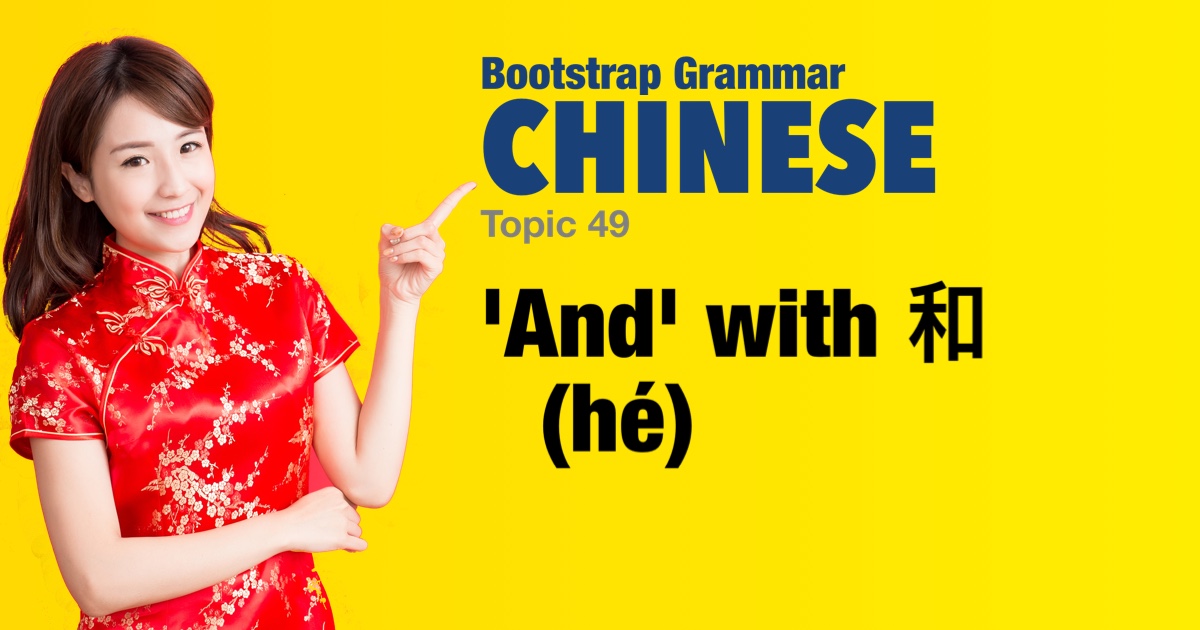Chinese grammar - 'And' with 和 (hé) |
|||
|
|||
The Chinese conjunction 和 (hé) means 'and'. It is used to connect two or more words, phrases, or clauses, indicating addition or combination. It can be used to connect nouns as well as verbs. It is neutral and non-contrasting. |
| Examples: | |
|
我和你是朋友。
wǒ hé nǐ shì péngyǒu. You and I are friends. |
|
|
他和她在公园。
tā hé tā zài gōngyuán. He and she are in the park. |
|
|
我们吃米饭和面条。
wǒmen chī mǐfàn hé miàntiáo. We eat rice and noodles. |
|
|
书和笔在桌子上。
shū hé bǐ zài zhuōzi shàng. The book and pen are on the table. |
|
|
猫和狗是动物。
māo hé gǒu shì dòngwù. Cats and dogs are animals.
|
|
|
他在图书馆看书和听音乐。
tā zài túshūguǎn kànshū hé tīng yīnyuè. He reads and listens to music in the library. |
|
|
苹果和橙子是水果。
píngguǒ hé chéngzi shì shuǐguǒ. Apples and oranges are fruits. |
|
|
她和妹妹在商店。
tā hé mèimei zài shāngdiàn. She and her younger sister are in the store. |
|
|
她和她弟弟会说英语吗?
tā hé tā dìdi huì shuō yīngyǔ ma? Can she and her younger brother speak English?
|
|
|
我喝茶和咖啡。
wǒ hē chá hé kāfēi. I drink tea and coffee. |
|
|
我喜欢喝茶和咖啡。
wǒ xǐhuān hē chá hé kāfēi. I like drinking tea and coffee. |
|
|
我想要一支笔和一张纸。
wǒ xiǎng yào yì zhī bǐ hé yì zhāng zhǐ. I would like (to have) a pen and a sheet of paper. |
|
|
我们想要那个大蛋糕和这个小饼干。
wǒmen xiǎng yào nà ge dà dàngāo hé zhè ge xiǎo bǐnggān. We would like that big cake and this small biscuit.
|
|
 |
|



